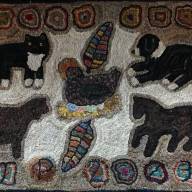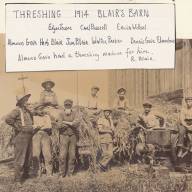By Sophie Bowater
Of all the boards and commissions operating under Governor Scott's oversight, none has had more well-deserved scrutiny and created more controversy than the uncredentialed Fish and Wildlife Board, the governmental body entrusted with making public policy over game and furbearer species like moose, bear, bobcats, etc. Governor Scott has appointed only board members who represent trapping, fishing, hounding, and hunting license holders. His most recent appointee is a trapper, but less than 1% of Vermonters trap. There's no diversity of values, politics, and other factors, and there's no requirement to have any kind of formal education in science or biology.
Game species, and all wildlife, according to law, are held in the public trust “…for the benefit of the citizens of Vermont…” and not just for an exclusive, privileged minority of Vermonters, yet the Board is essentially a private game club. The governor has violated state statute in Title 10, Chapter 103, by ignoring the law's call for wildlife “… not be reduced to private ownership." For those of us who have tried to participate in Fish & Wildlife discussions, only to be ignored time and time again, it surely feels like wildlife has indeed been reduced to private ownership by those who hunt or trap. A lot of wildlife advocates have chosen to no longer attend the Fish & Wildlife board meetings because they are tired of the cronyism.
Governor Scott has also ignored the letter and spirit of Vermont’s Constitution's Article 7 that states in part, "That government is instituted for the common benefit, protection, and security of the people, nation or community and not for the particular emolument or advantage of any single, person, family, or set of persons, who are a part only of that community." The Board is incapable of standing for common benefit since it reflects only a small part of the Vermont community, yet holds tremendous power.
And why has the governor, once again, chosen to appoint a Fish and Wildlife Department commissioner with no wildlife credentials? The commissioner likes to use the word "science" a lot, but it seems like he doesn't know what science-based policy looks like. This is made evident by his refusal to follow the science and institute a limited, regulated coyote season versus the current open killing season. The VT Fish and Wildlife Department's scientific research shows that otters are being poisoned by water contaminants, yet they still chose to honor a trapper's petition to extend the otter trapping season a few years ago. The list of inconsistencies is long and the biases toward trapping interests runs deep.
Speaking of biases, I thought it was especially telling that the commissioner was at the State House recently to testify on trapping and when the wildlife advocates got up to speak, he left the room. He did the same exact thing last year when wildlife advocates testified on a different trapping bill. He doesn't even pretend to feign interest.
It seems like the governor thinks that the sole mission of the Fish and Wildlife Department and Board is to act like a livestock (moose, deer, bear) production operation as its highest priority at a time when some 1,000 Vermont species have been listed as species in greatest conservation need. According to the previous commissioner, about half of Fish and Wildlife’s efforts are directed to game species, which constitute a small fraction of all VT species. Fish and Wildlife is spending tremendous resources to "manage" game and furbearer species for recreational activities like hunting and trapping first -- everything else is a distant second. That does not represent my interests, and it does not represent the growing needs of our imperiled wildlife in the 21st century.
Recently, a seasoned state senator who had just gotten an update on a Fish and Wildlife trapping initiative from the commissioner perfectly captured the current state of our wildlife management landscape by saying in committee, “I do want to say right now that I'm not impressed by the department’s testimony.”
Sophie Bowater lives in Middlesex, VT.












